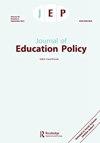在保密的背景下想象语言政策的制定:可持续发展目标4和老挝的少数民族
IF 3
2区 教育学
Q1 EDUCATION & EDUCATIONAL RESEARCH
引用次数: 1
摘要
摘要本文探讨了与联合国可持续发展目标4(SDG4)相关的政策制定过程,特别是其对确保包容性和公平的优质教育的强调。具体而言,作为老挝SDG4的一部分,该研究揭示了教学语言政策是如何针对少数民族制定的,重点关注老挝背景下的三组政策参与者——参与制定教育语言政策的政策制定者;提供资金支持老挝教育改革的捐助机构;负责制定该政策的少数民族寄宿学校的教师。这些发现基于关于想象中的社区和保密的相关理论,包括在老挝的背景下,揭示了保密在这一颁布过程中的核心作用。研究结果显示,三种类型的保密行为影响了政策参与者对老挝少数民族教育的想象和实施,以应对SDG4:创造民族团结形象的保密;因害怕报复而产生的保密;保密以安全地抵制占主导地位的政策话语。这项研究对在实施可持续发展目标4等全球政策改革的低收入国家背景下如何真正理解这些改革具有启示意义。本文章由计算机程序翻译,如有差异,请以英文原文为准。
Imagining language policy enactment in a context of secrecy: SDG4 and ethnic minorities in Laos
ABSTRACT This article explores policy enactment processes in relation to the United Nations’ Sustainable Development Goal 4 (SDG4), particularly its emphasis upon ensuring inclusive and equitable quality education. Specifically, as part of SDG4 in Laos, the research reveals how medium-of-instruction policy was enacted in relation to ethnic minorities, focusing upon three groups of policy actors in the Lao context – policymakers involved in developing education language policy; donor agencies that provided funds to support education reform in Laos, and; school teachers in an ethnic minority boarding school who were charged with enacting the policy. The findings, informed by relevant theorising about imagined communities and secrecy, including in the Lao context, revealed the central role of secrecy in this enactment process. The findings showed three types of secrecy at play which influenced policy actors’ imaginations and enactments of ethnic minority education in response to SDG4 in Laos: secrecy to create the image of national unity; secrecy arising from fear of reprisal, and; secrecy to safely resist dominant policy discourses. The research has implications for how global policy reforms, such as SDG4, are actually made sense of in low-income country contexts where such reforms are enacted.
求助全文
通过发布文献求助,成功后即可免费获取论文全文。
去求助
来源期刊

Journal of Education Policy
EDUCATION & EDUCATIONAL RESEARCH-
CiteScore
8.10
自引率
8.00%
发文量
25
期刊介绍:
The Journal of Education Policy publishes original, critically and theoretically informed research that discusses, analyses and debates policymaking, policy implementation and the impact of policy at all levels and in all facets of formal and informal education. The journal is interested in analysis and theorisation of policy that is transposable, that has generic interest and relevance - national policy case studies would need to be conceptually and/or methodologically generalisable. The journal also publishes work that presents new methods of research and research studies that are experimental and innovative. The journal offers a forum for theoretical debate, as well as historical, philosophical and comparative studies, across different countries, contexts and levels of education. A valuable resource for academics, researchers, educators and policy makers, Journal of Education Policy provides rigorous and original insights into educational policy development, implications and global impact.
 求助内容:
求助内容: 应助结果提醒方式:
应助结果提醒方式:


